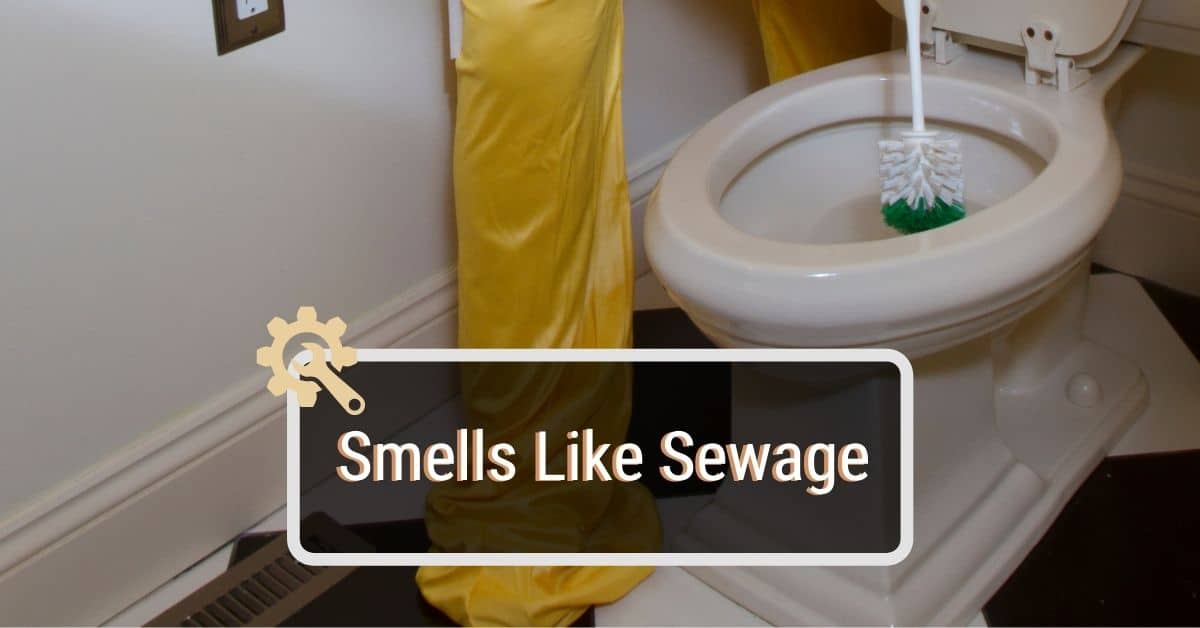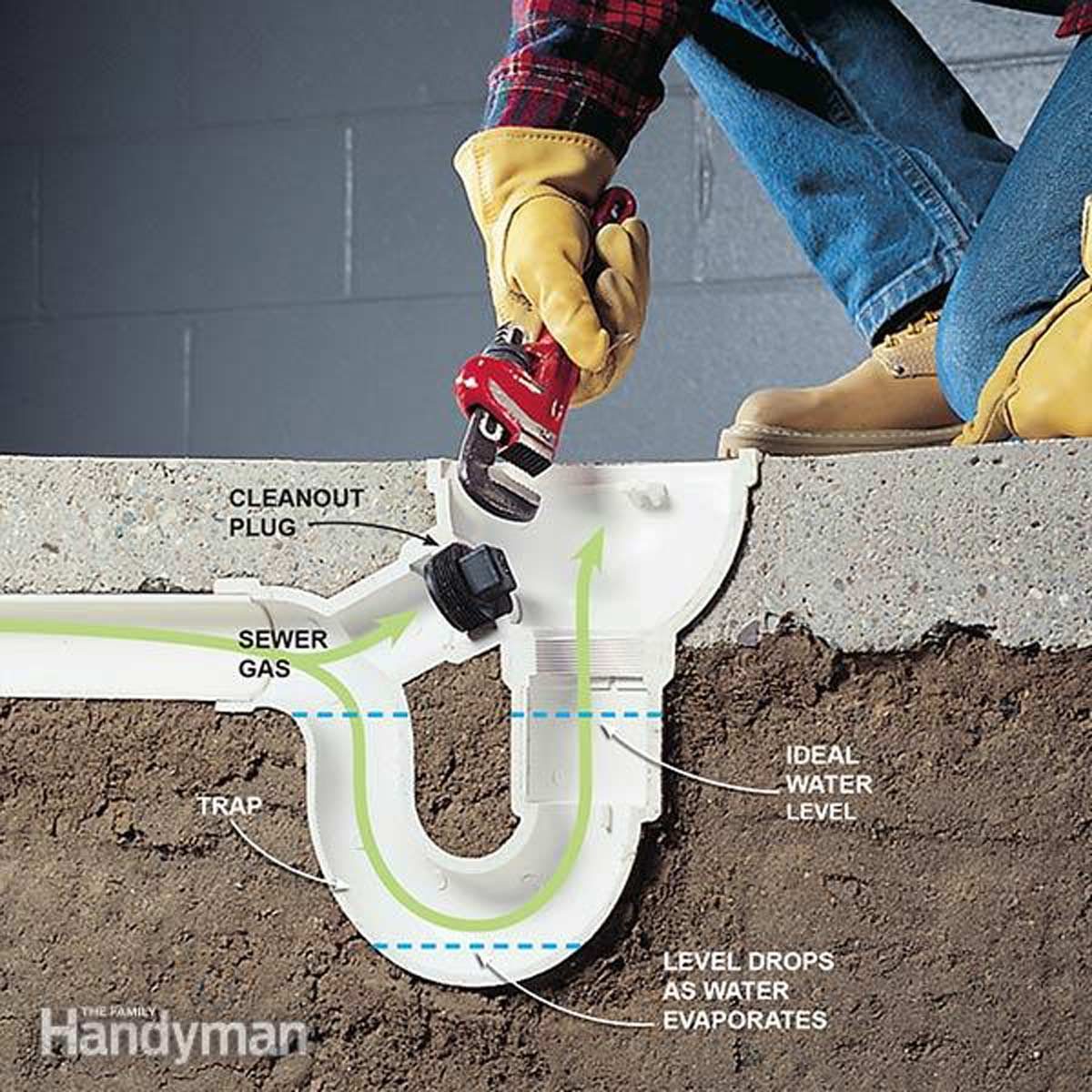Plumbing Issues

Bathroom sink drain smells like sewage – Unpleasant sewage odors emanating from bathroom sink drains can be indicative of underlying plumbing issues. These issues may range from simple clogs to more complex problems like faulty traps or leaking seals. Understanding the potential causes can help you diagnose and resolve the issue effectively.
To inspect for potential plumbing problems, start by conducting a visual check. Examine the pipes under the sink for any visible leaks or damage. Check the drain stopper to ensure it’s properly seated and not allowing water to bypass the trap. If the visual inspection doesn’t reveal any obvious issues, consider using a drain snake or camera to further investigate the drainpipe.
Clogged Pipes
Clogged pipes are a common cause of sewage odors. Debris, hair, and soap scum can accumulate over time, obstructing the flow of water and creating a breeding ground for bacteria. To clear a minor clog, try using a drain cleaner or a plunger. For more stubborn clogs, you may need to use a drain snake to manually remove the obstruction.
The stench of sewage emanating from your bathroom sink drain is an unpleasant and persistent problem. To address this issue, consider installing a small bathroom vanity with vessel sink. The elevated sink design allows for easy access to the drain, making it simpler to clean and remove any blockages or debris that may be contributing to the odor.
Faulty Traps
The P-trap, located under the sink, is designed to hold water and prevent sewer gases from escaping into the bathroom. If the trap becomes damaged or misaligned, it can allow sewer gases to seep through, causing unpleasant odors.
That sewage smell emanating from your bathroom sink drain can be off-putting, but you can combat it with an apron sink bathroom vanity. These sinks extend beyond the countertop, creating a barrier that prevents water and debris from seeping into the cabinet below.
This design helps keep the vanity clean and dry, reducing the risk of mold and mildew buildup, which can contribute to unpleasant odors.
Leaking Seals
Seals around pipes and drains can deteriorate over time, leading to leaks. These leaks can allow sewer gases to escape and create a foul smell. Inspect the seals for any cracks or tears and replace them if necessary.
While some minor plumbing issues can be resolved with DIY methods, it’s advisable to seek professional help for more complex problems. A qualified plumber can accurately diagnose the issue and implement the necessary repairs to restore proper drainage and eliminate sewage odors.
Biological Causes

The unpleasant odor emanating from your bathroom sink drain may stem from biological sources. Bacteria, mold, and mildew thrive in the moist environment of sinks and drains, especially when organic matter such as hair, soap scum, and toothpaste residue accumulates. These microorganisms decompose organic matter, releasing foul-smelling gases into the air.
Bacterial Growth, Bathroom sink drain smells like sewage
Bacteria are ubiquitous in our environment and can rapidly colonize bathroom sinks and drains. They feed on organic matter, producing hydrogen sulfide gas, which has a distinctive rotten egg smell. Factors that promote bacterial growth include:
- Warm, humid conditions
- Accumulation of organic matter
- Poor ventilation
Mold and Mildew Growth
Mold and mildew are types of fungi that thrive in moist environments with limited air circulation. They decompose organic matter, releasing musty and earthy odors. Mold and mildew growth is often visible as black, green, or pink discoloration on the drainpipe or surrounding surfaces. Factors that promote mold and mildew growth include:
- Persistent moisture
- Lack of sunlight
- Poor ventilation
Ventilation and Drainage: Bathroom Sink Drain Smells Like Sewage

Insufficient ventilation and drainage can contribute to bathroom sink drain smells like sewage. Moisture buildup and odor accumulation can occur in poorly ventilated bathrooms, creating an ideal environment for bacteria and mold growth. Additionally, clogged or slow-draining sinks can trap organic matter, leading to foul odors.
Adequate Ventilation
Proper ventilation is crucial for preventing moisture buildup and odor accumulation in the bathroom. Installing exhaust fans or opening windows helps circulate air, removing excess moisture and odors. Ensure the exhaust fan is vented to the outside, not just the attic, to effectively remove moisture from the bathroom.
Proper Drainage
Sink drains should flow smoothly to prevent water from pooling and creating an environment for bacteria and mold growth. Regularly clean sink drains to remove hair, soap scum, and other debris that can cause clogs. If clogs persist, consider using a drain cleaner or calling a plumber to resolve the issue.